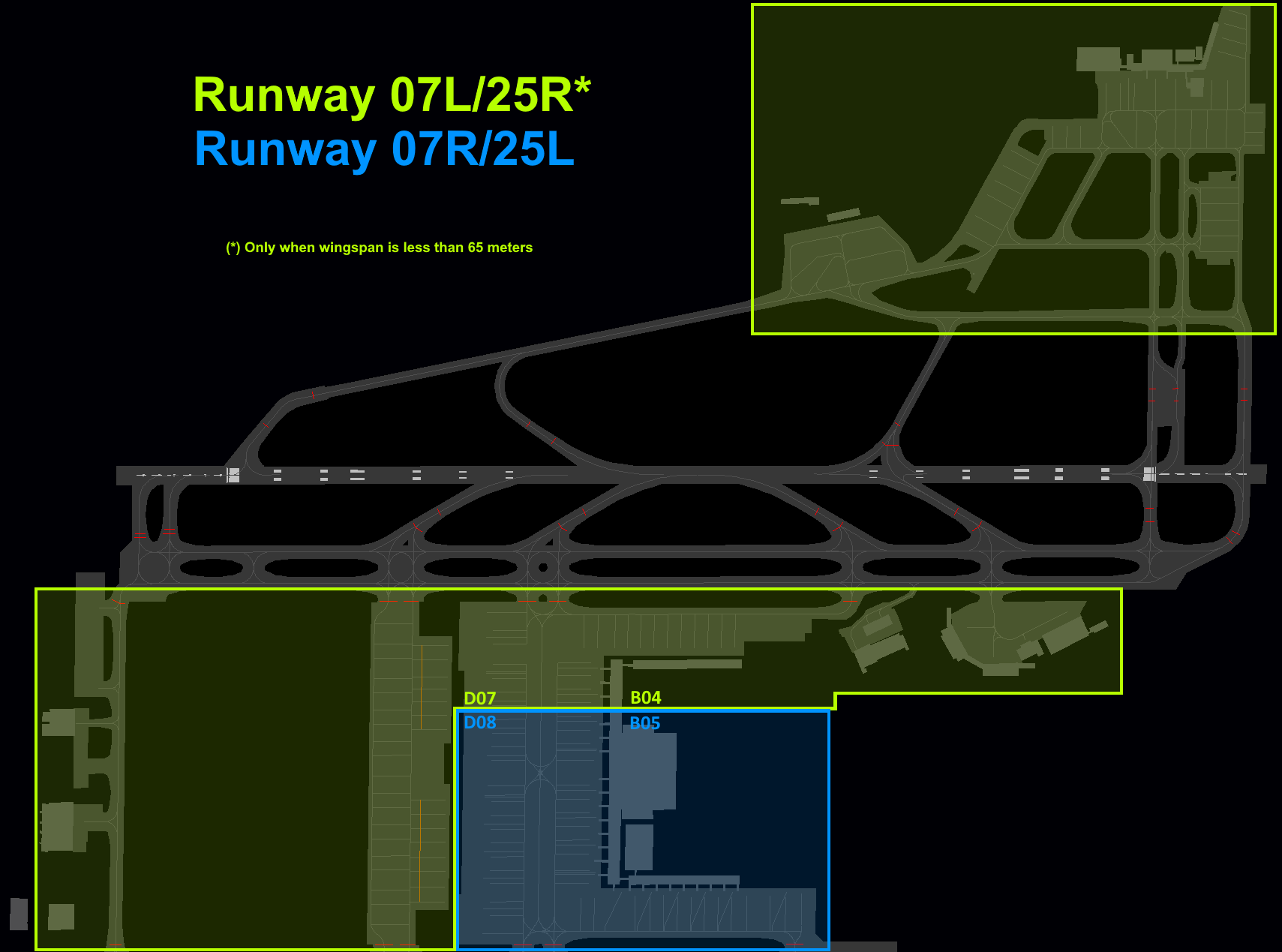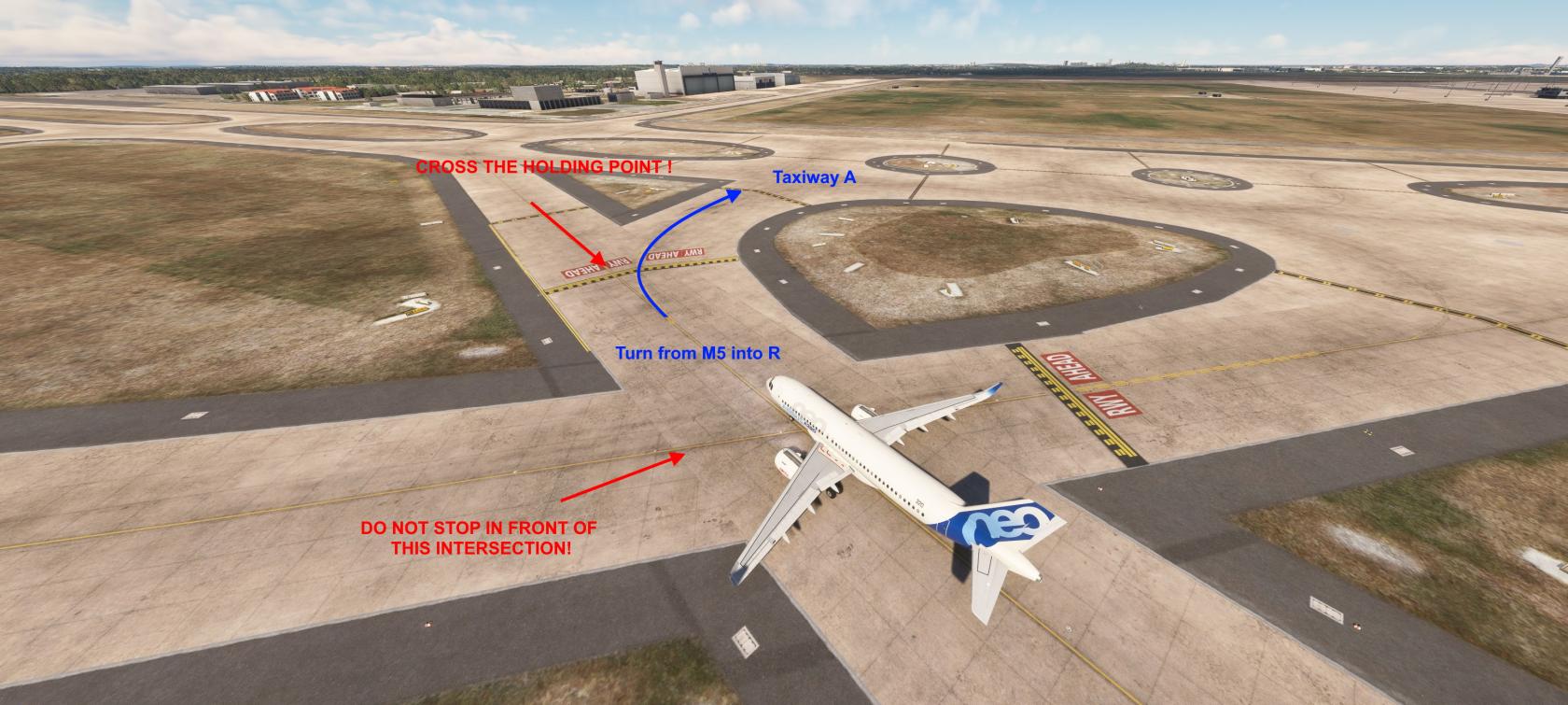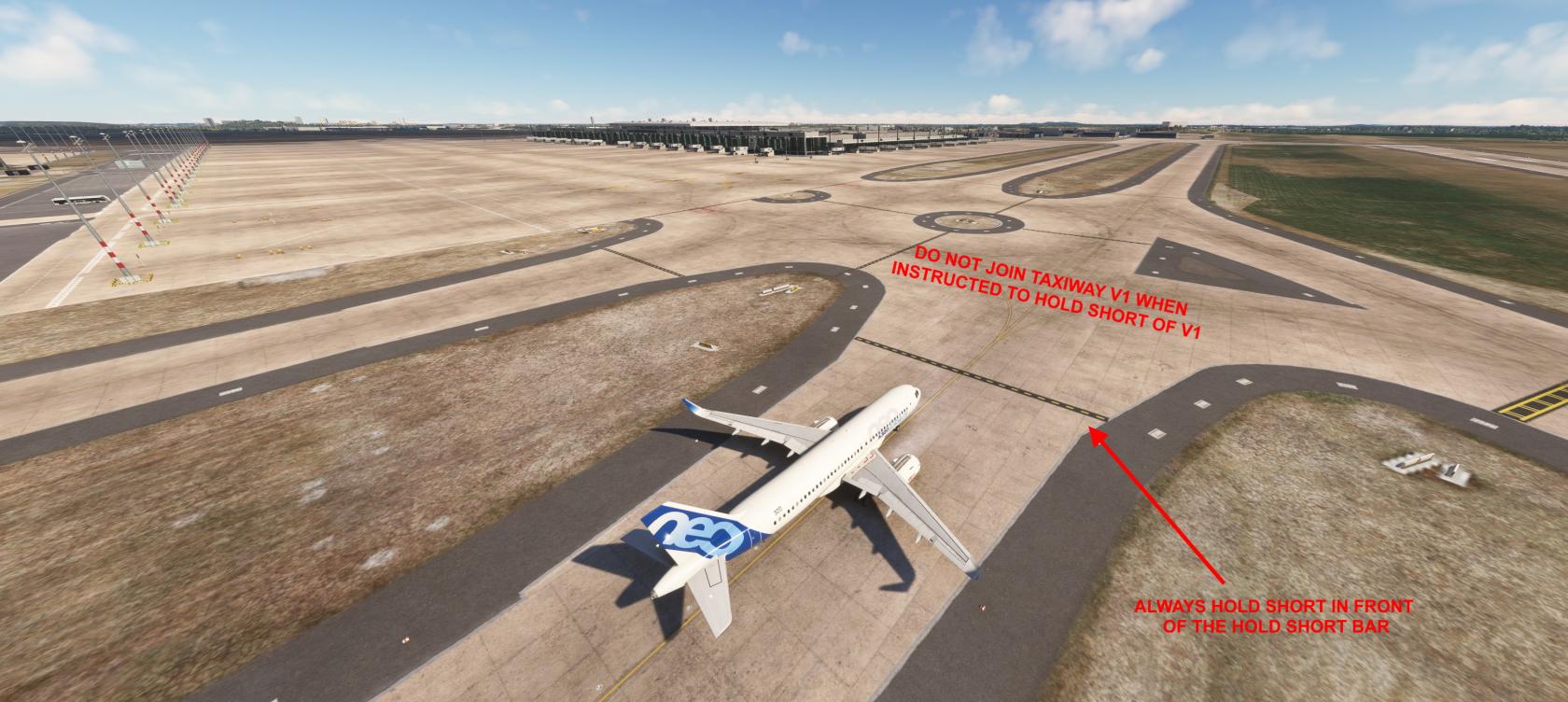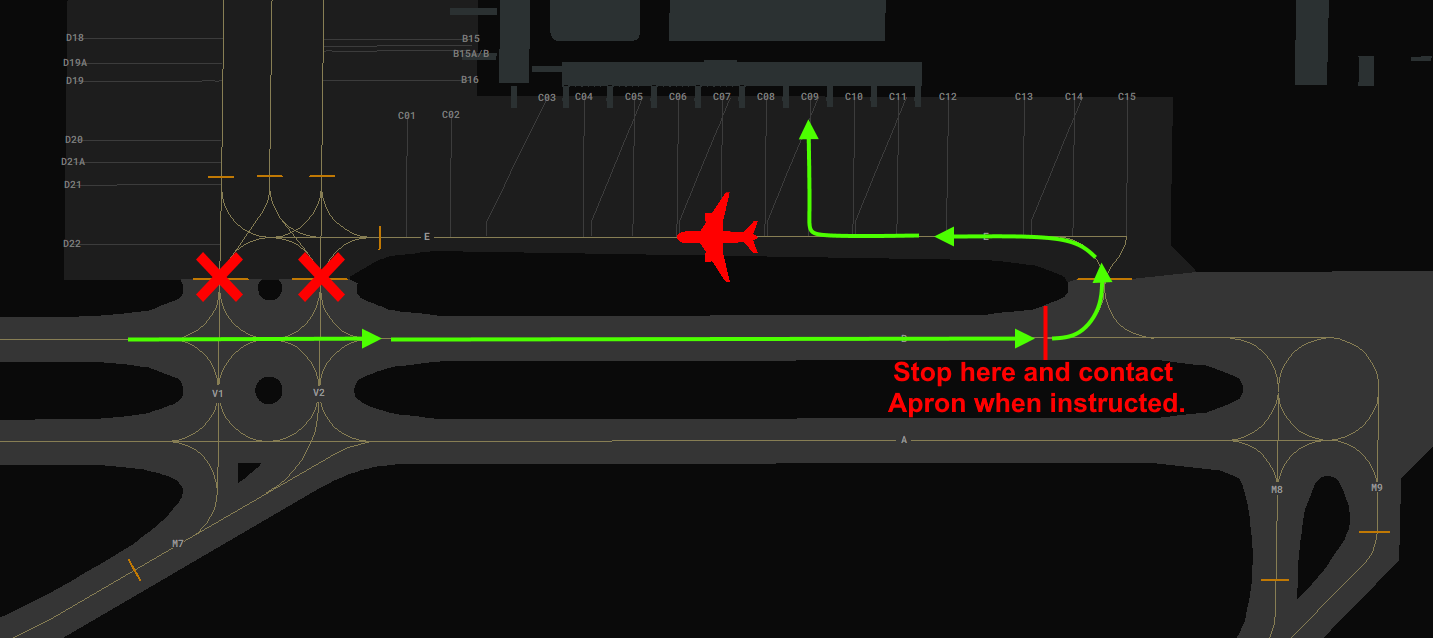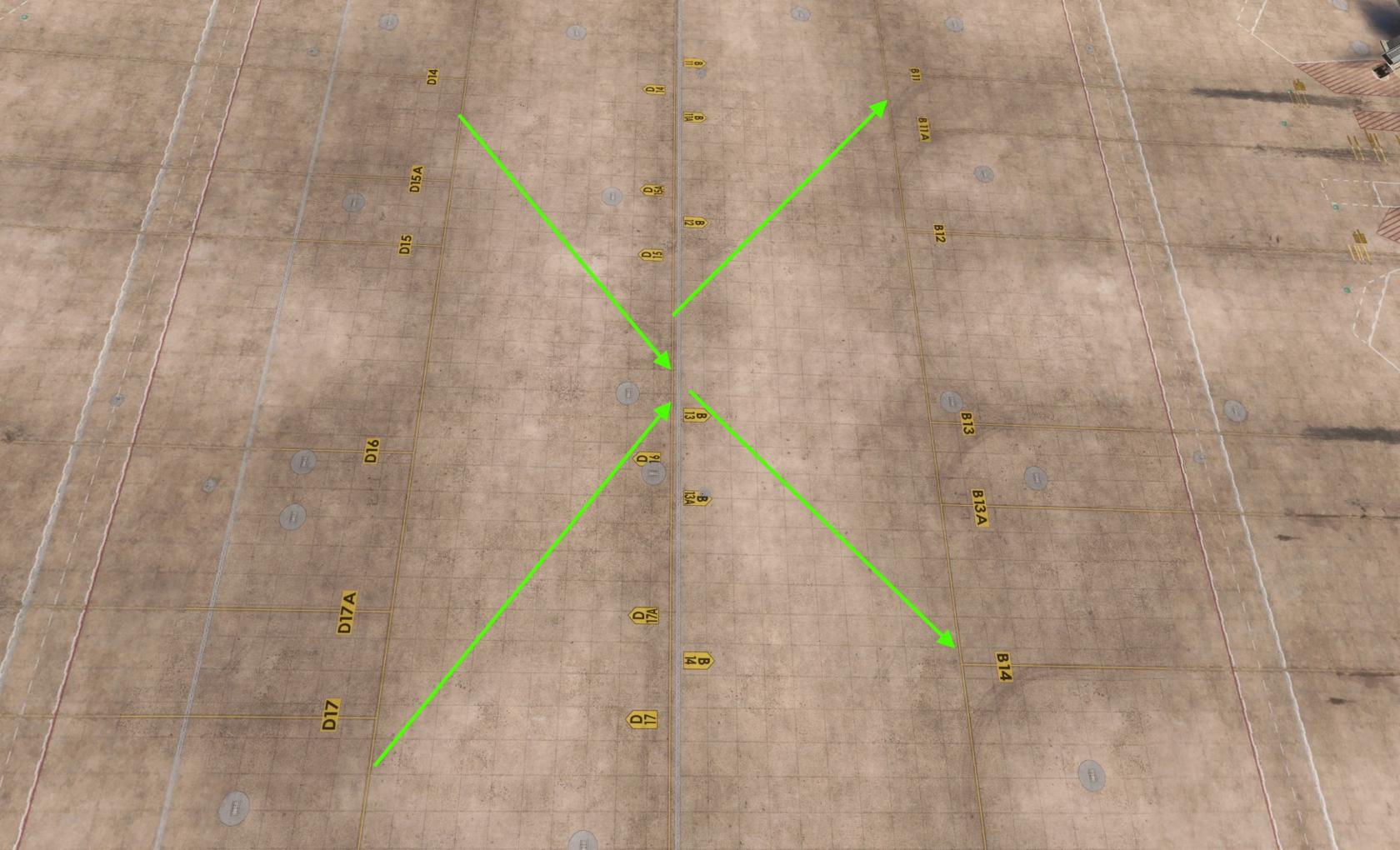Arriving Traffic
Descent Planning
To help ATC, please always plan your descent according to the following descent profile restrictions (expand the appropriate section):
Arrivals via OGBER
| Route | Descent Planning | Level at OGBER | Holding at OGBER |
|---|---|---|---|
| BATEL T207 OGBER | Cross BATEL at or below FL250 |
RWY 07: at or below FL100 RWY 25. at or below FL160 |
Inbound track: 117° Left Turns |
| BKD L619 VIBIS T209 OGBER | Cross BKD at or below FL250 |
Arrivals via KETAP
| Route | Descent Planning | Level at KETAP | Holding at KETAP |
|---|---|---|---|
| RODEP T280 OGBER | Cross RODEP at or below FL230 |
RWY 07: at or below FL160 RWY 25. at or below FL110 |
Inbound track: 147° Left Turns |
| PESEL L87 KETAP | Cross PESEL at or below FL220 | ||
| BODLA Z717 RAKIT L87 KETAP | Cross BODLA at or below FL200 |
Arrivals via KLF
| Route | Descent Planning | Level at KLF | Holding at KLF |
|---|---|---|---|
| RUDAK T278 KLF | Cross RUDAK at or below FL170 |
RWY 07: at or below FL080 RWY 25. at or below FL100 |
Inbound track: 020° Right Turns |
Arrivals via ATGUP
| Route | Descent Planning | Level at ATGUP | Holding at ATGUP |
|---|---|---|---|
| ZABEL T202 ATGUP | Cross ZABEL at or below FL210 |
RWY 07: at or below FL120 RWY 25. at or below FL120 |
Inbound track: 020° Right Turns |
| OSKAN T203 ATGUP | Cross OSKAN at or below FL200 |
Arrivals via NUKRO
| Route | Descent Planning | Level at NUKRO | Holding at NUKRO |
|---|---|---|---|
| ABLOX T204 NUKRO | Cross ABLOX at or below FL220 |
RWY 07: at or below FL160 RWY 25. at or below FL110 |
Inbound track: 331° Right Turns |
| GOVEN T205 NUKRO (RWY 07) | Cross GOVEN at or below FL180 | ||
| GOVEN T205 NUKRO (RWY 25) | Cross GOVEN at or below FL120 |
Expected Trackmiles
In contrast to the flight plan, the following distances from the starting point of the transition to the landing may be regarded as the expected flight distance for flight and fuel planning purposes. Any deviations from this may be regarded as a delay situation.
| From IAF | Runway In Use | Average flight distance (NM) from IAF to the runway |
| OGBER |
07 | 40 |
| 25 | 67 | |
| KETAP |
07 | 69 |
| 25 | 49 | |
| KLF |
07 | 37 |
| 25 | 53 | |
| ATGUP |
07 | 60 |
| 25 | 52 | |
| NUKRO |
07 | 71 |
| 25 | 54 |
Expected Routing after IAF
Traffic will usually guided via radar vectors or the transition to the final. Please don't program the published standard approach from the IAFs. You'll need to use the Transition including all DB waypoints.
For Berlin, only the corner waypoints of the transition are referenced to the transition procedure in the FMC. Nevertheless, ATC often clears traffic to a waypoint on the downwind or final. If a waypoint is not already part of the transition loaded in the FMC, please enter the instructed waypoint manually in your flight plan.
Runway Assignment
At Berlin, the arrival runway will always be assigned by Berlin Arrival. In most cases, your arrival runway is assigned depending on your expected parking position to reduce taxi times. Aircraft with a wingspan of 65 m or more shall expect runway 07R/25L.
Note that Berlin Arrival may alter from the standard runway assignment procedure if required due to traffic, weather or on request from Berlin Tower.
High Intensity Runway Operations
To increase traffic and frequency capacity, the following procedures shall be applied by the pilot arriving at Berlin-Brandenburg.
Change of Frequency to Berlin Director
While being transferred from BREMEN RADAR to BERLIN DIRECTOR, the initial call shall be restricted to CALLSIGN only, to avoid frequency congestion.
Runway Turn-Off Taxiways
To enable the greatest possible throughput of approaches and departures per hour, RWY occupancy times shall be reduced to a minimum. If RWY conditions permit, the following rapid exit TWYs shall be used:
| TYPE CLASS | RWY 25R | LDA | RWY 25L | LDA | RWY 07R | LDA | RWY 07L | LDA |
| HEAVY | L3 | 1960 m | M3 | 2255 m | M6 | 2045 m | L6 | 2005 m |
| MEDIUM JET | L4 | 1490 m | M5-R | 1785 m | M4 | 1575 m | L5 | 1555 m |
If it is already clear to the pilot on approach that the above TWYs cannot be used, he shall inform aerodrome control of this.
When landing on runway 07R, please only use turn-off taxiway M7 when approved by Berlin Tower!
Automatic Handoff to Ground
If stated in the ATIS, after leaving the RWY, the pilot shall immediately change to the frequency of ground control of his own accord and make an initial call. There will be no handoff from Tower to Ground after landing.
Please check the ATIS carefully, as there the automatic handoff procedure will be described.
If the automatic handoff procedure to Berlin Ground is active the ATIS will display:
AFTER VACATING RUNWAY 07L CONTACT GROUND ON FREQUENCY 129.505. AFTER VACATING RUNWAY 07R CONTACT GROUND ON FREQUENCY 121.705.
AFTER VACATING RUNWAY 25R CONTACT GROUND ON FREQUENCY 129.505. AFTER VACATING RUNWAY 25L CONTACT GROUND ON FREQUENCY 121.705.
If the automatic handoff procedure to Berlin Ground is not active the ATIS will display:
AFTER VACATING RUNWAY 07L OR 07R REMAIN ON FREQUENCY.
AFTER VACATING RUNWAY 25R OR 25L REMAIN ON FREQUENCY.
Taxi Operations
Vacating the Runway
Unless he has received a further taxi clearance, the pilot shall hold in front of TWY D when taxiing off the northern RWY to the south, and hold in front of TWY A when taxiing off the southern RWY RWY (if leaving via TWY M5 TWY R may also be used to hold in front of TWY A).
When vacating via M4 (RWY 07R) or M5 (RWY 25L) always continue your taxi until you have crossed the holding point. NEVER STOP IN FRONT OF THE INTERESTING TAXIWAY.
Hold Short
Berlin Ground will usually instruct to hold short of taxiway V1 for traffic taxiing from runway 07R/25L. Traffic from runway 07L/25R may be instructed to hold short of taxiway V3 or V4.
Holding short of a taxiway means stopping in front of this taxiway. Never join taxiway V1, V2, V3 or V4 without the explicit instruction from Berlin Ground or Berlin Apron.
Alternative Apron Entry
For traffic parking on Apron C, Berlin Ground may instruct an alternative procedure to join the apron manoeuvering area, in case traffic is blocking taxiway E. If instructed this procedure, do not join the apron via V1 or V2. Please only use this procedure when instructed by ATC!
Berlin Ground will usually use an instruction like the following:
"EJU32CM, taxi via B to the end, hold short of E.
Before reaching Taxiway E, where you'll then need to stop on Taxiway B, in front of the intersection, Berlin Ground will usually instruct the pilot to contact Berlin Apron. Only enter taxiway E when instructed by Berlin Apron.
Swing-Over
ATC will often issue "Swing-Over-Instructions" meaning that aircraft are supposed to directly switch taxiways from the present positions. This procedure will be applied between taxiways V1, V2 and VC.
Please don't follow any guidance lines to swing over between taxiways V1, V2 and VC. Instead, switch directly when instructed by Berlin Apron.
Note: This procedure will not be applied when Low Visibility Conditions exist.

